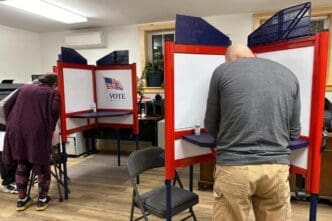In a determined push to redefine the nation’s voting procedures, Republicans, now wielding control of both Congress and the White House, are set to advance significant electoral reforms. These efforts are aimed at instituting voter ID and proof-of-citizenship requirements, responding to what they perceive as an urgent need to restore public trust in elections.
The GOP’s proposed legislative changes are encapsulated in the American Confidence in Elections Act (ACE) and the Safeguard American Voter Eligibility Act (SAVE). These bills aim to tighten the voter registration process by mandating documents such as a REAL ID-compliant driver’s license, passport, or birth certificate as proof of identity and citizenship. According to GOP Representative Bryan Steil, chair of the Committee on House Administration, this legislative push is motivated by the desire to enhance the integrity of American elections.
However, these proposals are not without controversy. Democrats argue that the intended reforms primarily serve to restrict voter access rather than bolster election security. New York Representative Joe Morelle, the senior Democrat on the Committee, contends that the ACE and SAVE acts would disproportionately make it more challenging for certain groups, like college students and individuals without a permanent address, to vote. He advocates instead for federal funding to support election infrastructure and bipartisan efforts to limit foreign influences and explore voter ID requirements that do not impede voter access.
Despite the differing viewpoints, there is some common ground. Both parties acknowledge the rare occurrence of noncitizen voting, and Democrats like Morelle emphasize the necessity of addressing baseless claims of widespread illegal voting that surged during the political campaigns but dissipated following the election results. This bipartisan recognition could pave the way for collaborations on specific electoral issues.
Critics of the GOP’s approach highlight that current voter registration practices already include measures such as requiring a driver’s license or Social Security number, which, despite occasional lapses, are largely effective in maintaining voter audits. Georgia’s recent audits exemplify this, uncovering only isolated incidents of ineligible voter registration. Georgia Secretary of State Brad Raffensperger asserts that the state’s stringent auditing practices provide confidence in the system’s integrity, showcasing efficient citizenship verification methods without necessitating sweeping federal laws.
Looking to the future, any federally mandated changes would demand implementation at the state level, a notion met with caution from election officials. Both Georgia’s Raffensperger and Michigan Secretary of State Jocelyn Benson, a Democrat, warn against proposals to limit voting to a single day, underscoring the popularity and efficacy of early voting and mail-in ballots. With 71% of Georgians opting for early voting, there is strong advocacy for preserving diverse voting methods that accommodate the electorate’s varied needs.
As the nation stands on the brink of potential legislative shifts, the debate remains centered on balancing electoral security with accessibility. The Republican-led initiatives seek to address perceived vulnerabilities, yet they face significant scrutiny and the challenge of maintaining bipartisan dialogue. Whether these efforts will result in meaningful reforms or stall amidst partisan divisions remains to be seen, but the dialogue undoubtedly underscores the ongoing evolution of America’s electoral landscape.
Source: Sun-sentinel








